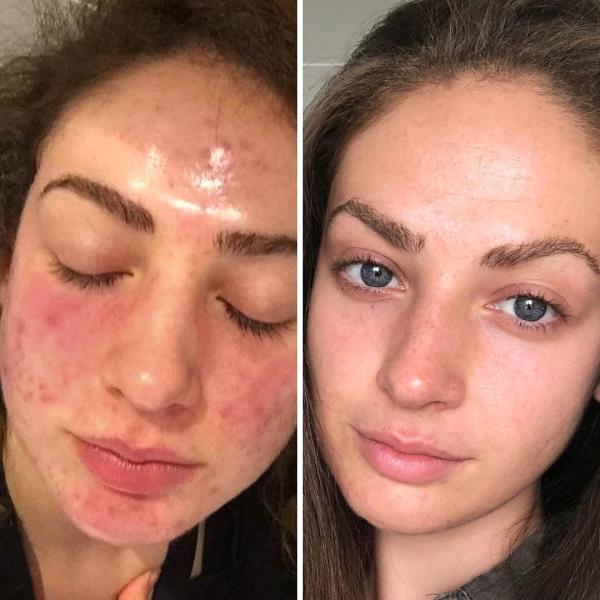Debunking the Myth: The Truth About Diet and Acne | |||
 1,474 1,474  0 0  0 0 | |||
| The link between diet and acne is complex, and the idea that specific foods directly cause acne is largely a myth. While some studies suggest a correlation between high-glycemic index foods (like sugary drinks and processed carbohydrates) and acne severity, a causal relationship hasn't been definitively proven. Individual responses vary greatly, and factors like genetics, hormones, and hygiene play far more significant roles in acne development than diet alone. While a balanced diet rich in fruits, vegetables, and whole grains is beneficial for overall health, eliminating certain foods isn't guaranteed to clear up acne for everyone.
Image Reference: https://emilianutrition.co.uk/acne-nutrition/ The link between diet and acne is a complex one, and the "certain foods cause acne" myth is a simplification of a much more nuanced reality. While it's not a straightforward cause-and-effect relationship like some might believe, diet *can* play a role in some individuals' acne. Let's debunk the myths and look at the truth:
Myth 1: All sugary foods cause acne.Truth: High glycemic index (GI) foods, which cause rapid spikes in blood sugar, are more strongly linked to acne than simply sugary foods. These rapid spikes increase insulin levels, potentially stimulating androgen production and inflammation, both implicated in acne development. This means that while a sugary soda might be worse than a piece of fruit, the fruit's lower GI impact means it's less likely to trigger a significant acne flare-up. The quantity of sugary foods also matters; occasional indulgence is less likely to cause issues than consistent high consumption.
Myth 2: Dairy always causes acne.Truth: The evidence surrounding dairy and acne is mixed. Some studies suggest a correlation between dairy consumption, particularly skim milk, and acne severity, possibly due to hormones (like IGF-1) present in milk. However, other studies have found no significant link. Individual responses vary greatly. If you suspect dairy is a trigger for your acne, eliminating it from your diet for a few weeks and observing the results might be helpful, but it's crucial to consult a dermatologist.
Myth 3: Chocolate causes acne.Truth: Like dairy, the evidence is mixed. Chocolate often contains high levels of sugar and fat, both of which could contribute to acne as discussed above. However, it's difficult to isolate chocolate's effect from these other factors. A small amount of dark chocolate might not have the same effect as a large chocolate bar laden with sugar and milk.
Myth 4: A specific diet completely cures acne.Truth: There's no magic diet that will cure acne for everyone. While dietary changes might improve acne in some individuals, it's rarely a standalone solution. Acne is a complex skin condition influenced by genetics, hormones, inflammation, and bacteria. A holistic approach addressing all these factors is usually necessary.
While a specific diet might not cure acne, a healthy, balanced diet can contribute to overall skin health. Focusing on whole, unprocessed foods, fruits, vegetables, and lean proteins is generally recommended for better overall health, which might indirectly improve acne. However, if you struggle with acne, consulting a dermatologist is crucial. They can help determine the underlying causes of your acne and recommend the most appropriate treatment plan, which may include topical medications, oral medications, or a combination thereof, potentially alongside dietary advice tailored to your specific situation. Self-treating based solely on anecdotal evidence can be ineffective and even harmful. Tags: Acne Treatment Balanced Diet Dermatology Diet And Acne Healthy Diet Skin Health Skincare Myths | |||
| |||
| | |||
|
 3350
3350 